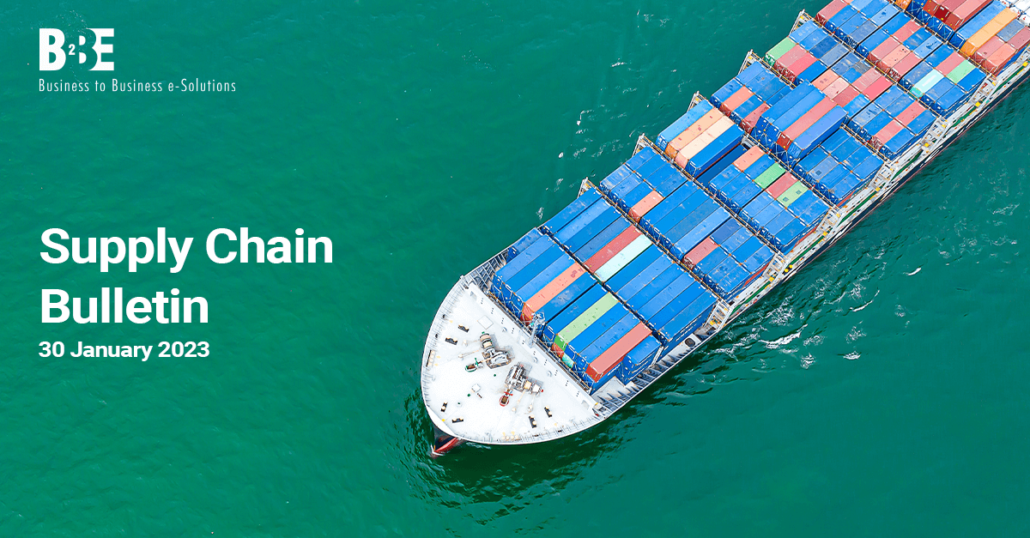This is your weekly supply chain bulletin from B2BE for the week starting 30th January 2023.
Each week, we bring you a rundown of the latest trends in the news from across the supply chain industry. We cover the issues most important to you, bringing you useful links to the full articles. This ranges from news on various supply chain disruptions to strategies to lessen the damage. We also include other relevant supply chain related updates. If you missed it, you can read last week’s supply chain bulletin here. Read on to see what’s making the news this week.
Is ‘nearshoring’ happening faster than expected?
A recent Gartner report has shared that 88% of small to medium-sized businesses have already switched to suppliers closer to home. Nearshoring is the practice of switching to suppliers located closer to home, even the same region, to save on supply chain costs and delays. Nearshoring, whilst expected, is happening at a much faster rate than predicted for smaller businesses.
No sign of return to supply chain normality in 2023
As goods begin moving more freely than during the start of the 2021 supply chain crisis, the pressures on the supply chain continue. The issues are no longer just the logistical problems, but a juggle of record inflation, radical shifts in demand, slowing growth, bloated warehouses with wrong inventories, and supply shortages. These issues raise the question, will the supply chain ever return to what is perceived as normal or, as we head into 2023, do businesses need to change the way we look at supply chains?
Record high of electric car sales despite supply chain issues
The recent disruption to global supply chains have caused continued shortages of crucial semiconductor chips, started initially from the pandemic, and exacerbated by Covid restrictions in China. However, sales of electric vehicles reached the largest monthly market share in December 2022 with the industry body forecasting new sales growth of 15% in 2023.
Could there be an end of reliance on Chinese battery supply chain in the next 8 years?
China has been dominant in the lithium-ion battery supply chain for the last decade. It controls the supply of lithium and virtually every step in the supply chain. Environmental advocacy group, Transport & Environment published a report highlighting how Europe secured commitment and investment into the area of electric cars (EV) and batteries. With over half of all lithium-ion batteries on the EU market in 2022 being produced in Europe, making it the world’s second biggest battery cell manufacturer.
About B2BE
B2BE delivers electronic supply chain solutions globally, helping organisations to better manage their supply chain processes, providing greater levels of visibility, auditability and control. We’re driven by a passion for what we do, inspired by innovation, and underpinned by a wealth of knowledge. With over 20+ years of experience, the B2BE teams operate worldwide.
Ga voor meer informatie naar www.b2be.com.
